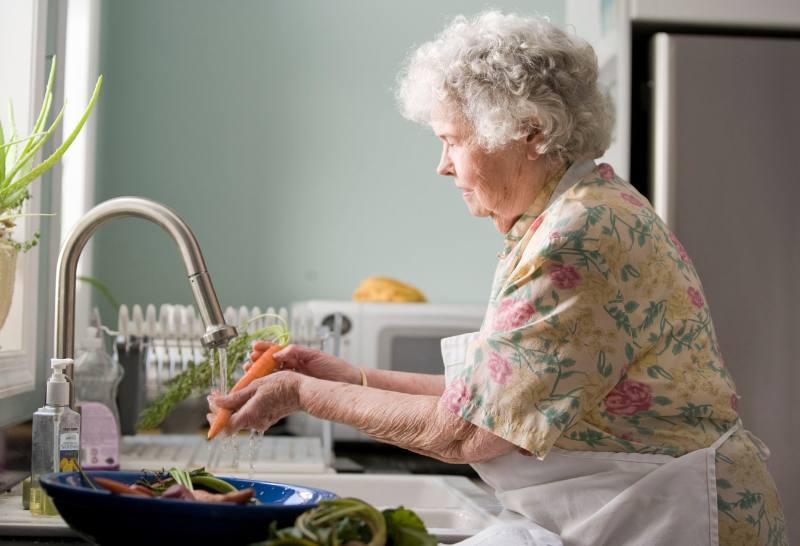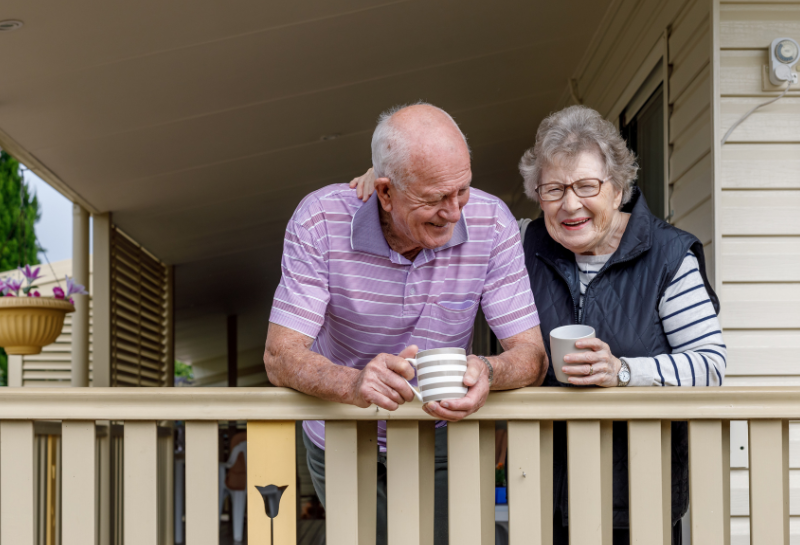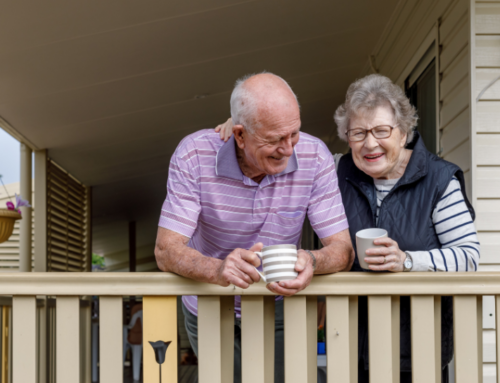Social Isolation and Loneliness Poses Mental and Emotional Consequences — Part 2
In Part 1 of our social isolation series, we distinguished between loneliness and social isolation, so we understand them and are clear about how these two phenomena can show up in the lives of our seniors.
We used the Surgeon General’s Advisory, Our Epidemic of Loneliness and Isolation 2023, to bring forth the idea that without social connection, using the pillars of structure, function, and quality, our seniors face an increased risk of physical health issues that can lead to illness and premature death.
In this article, we’ll look from a different vantage point — how social isolation and loneliness affect a senior’s mental and emotional health.
When considering mental and emotional health consequences, we include the following:
- Cognitive function — dementia, including Alzheimer’s disease
- Depression and Anxiety
- Diminished Social skills
- Self-harm
The Surgeon General’s Advisory (Our Epidemic of Loneliness and Isolation, 2023) states, “Chronic loneliness and social isolation can increase the risk of developing dementia by approximately 50% in older adults.” Another study that followed seniors over 12 years found that “cognitive abilities declined 20% faster among those who reported loneliness.”
What can we do to combat this growing phenomenon? First and foremost, we can offer programs that support a senior’s social, emotional, and physical well-being which will reduce social isolation and loneliness.
Cognitive function — dementia, including Alzheimer’s disease
Being socially cut off can increase your risk of dementia in the form of Alzheimer’s disease and other mental illnesses.
One way this has been determined is by linking social isolation to shrinkage in parts of the brain critical for cognition. For example, the Fisher Center for Alzheimer’s Research Foundation found that being socially isolated was tied to a 26% increased risk of dementia.
*NOTE — This study was completed before Covid-19; therefore, the intensified social isolation of the pandemic is not included in the results.
In another study, 5,022 participants were examined over the course of nine years. Based on a two-hour in-person interview, 23% who started the study were determined to be socially isolated but showed no signs of dementia. However, by the end of the nine years, 21% of the entire sample had developed dementia. The research concluded that the risk of developing dementia over nine years was 27% higher among socially isolated seniors compared to seniors who were not socially isolated.
Why might this be? According to Alison Huang, Ph.D., M.P.H, a senior research associate at Johns Hopkins Bloomberg School of Public Health,
“One possible explanation is that having fewer opportunities to socialize with others decreases cognitive engagement as well, potentially contributing to increased risk of dementia.”
Given the evidence gathered over the last two decades, the possibility of increased risk of dementia and other cognitive weaknesses is high as we age. With a growing demographic of seniors (65+), more than twice as many in 2040, about 80.8 million, than in 2000 and 94.7 million by 2060, an essential public health response is needed to reduce poor health outcomes.
The evidence has consistently shown that wider social networks and more frequent social engagements with friends and family are associated with better cognitive function and may protect against dementia.
Depression and Anxiety
We must understand that depression manifests differently for different people and different demographics. For example, older adults may not express depression as feeling “sad.” Instead, they may complain of a lack of energy, feeling unmotivated, or even physical pains. For seniors, complaints of physical pain such as headaches and arthritis can be considered symptoms of depression.
Symptoms of depression or anxiety can include the following:
- Feeling tired
- Trouble sleeping
- Experiencing confusion
- Struggling to pay attention
- No longer enjoying activities they once used to
- Changes in appetite or weight
- Experiencing new aches and pains
- Feelings of hopelessness
Social isolation and loneliness is a critical component of depression and anxiety. Getting older, for many, comes with loss. Loss of social support systems generally found with family and friends, death of a spouse or siblings, losing purpose through retirement, and even relocation. The Surgeon General reports that “in older adults, both social isolation and loneliness have been shown to independently increase the likelihood of depression or anxiety.”
We understand that social isolation and loneliness contribute to depression and anxiety in our seniors, and we can help reduce these symptoms by providing sources of motivation and meaning. The Surgeon General says, “A sense of meaning positively contributes to health because it motivates greater self-regulation in pursuing goals—including health goals. Furthermore, evidence suggests that individuals with a higher purpose and perceived emotional and practical support from their social networks are more likely to engage in health-promoting behaviors, such as using preventive healthcare services.”
By having places for seniors to gather and engage with each other, we can contribute to their better physical, mental, and emotional health.
Diminished Social Skills
Social and emotional life also changes with age as our social networks narrow, and social roles change in their amount and quality. In addition, physical functions change so that what was once easy to do becomes more labored; our biological processes become less regulated, and sensory losses such as hearing strain conversations.
All of these changes lead to more isolation, and with more isolation comes diminished social skills. Human beings are social creatures and need, at minimum, social connection. Social isolation and loneliness can affect social skills in the following ways:
- Difficulty in knowing how to react or act in certain situations
- Becoming more self-centered or rude
- Diminished self-confidence
- Adopting a negative outlook
- Struggling to regulate emotions and feelings
- Feeling dread when attending social activities
Seniors maintaining their social skills to remain alert, confident, and emotionally strong supports their ability to combat depression, anxiety, and dementia.
A social network that provides emotional meaning, companionship, and practical solutions such as shared meals, exercise, regular conversation, and safety assurances, to name a few, supports overall well-being and mitigates diminished social skills.
Self-harm and Suicides
Thousands of seniors commit self-harm, and lives are lost annually to suicide. Living with chronic pain and depression due to social isolation and loneliness contribute to these preventable tragedies.
The CDC reports, “Adults aged 75 and older have one of the highest suicide rates (20.3 per 100,000), with men 75+ having the highest suicide rate, 40.5 per 100,000. mylifesite.com, committed to consumers having access to better information about senior living, says, “While seniors make up only 12 percent of the U.S. population, they account for approximately 18 percent of all suicides in the country.
A 2010 study, The Interpersonal Theory of Suicide, uses the term “thwarted belongingness” to describe the experience of social isolation before death. Experiencing social isolation before suicide is primarily actual in men after age 65, when retirement is typical. Losing social roles and networks can cause a sense of no longer belonging. The increased stress from no longer being part of a community and fewer opportunities to develop connections lead to social isolation, loneliness, and depression.
Thwarted belongingness can also be contributed to by functional disability, one being limited in daily activities or needing assistance performing these activities. For example, if a senior experiences diminished abilities in physical function and stops interacting outside their home, they become alone and begin to experience social isolation and loneliness.
To intervene with experiences of thwarted belongingness, interventions using community-based support can make a difference. Furnishing social structures that give care and a base of belonging and engagement can build critical feelings of self-esteem and worthiness.
The Bottom Line
The mental and emotional consequences of social isolation and loneliness are proven through decades of studies showing a correlation between these experiences and diminished cognitive function — dementia, including Alzheimer’s disease, depression and anxiety, reduced Social skills, self-harm, and suicide.
It is within our power to serve and protect seniors from the avoidable outcomes of social isolation and loneliness. We have structures in place, people committed, and the tools to make a difference.
To learn more about how to make a difference for your loved ones and others in your community, click here.
Sources:
- Journal of The American Geriatrics Society, 11 January 2023
- The Surgeon General Advisory, Our Epidemic of Loneliness and Isolation.
- Webmd.com, Depression in Older People, September 04, 2022
- National Library of Medicine, Social, and Emotional Aging
- ThrivingCenter of Psychology, How Can Solitude and Isolation Affect Your Social Skills
- The CDC, Suicide Prevention, Disparities in Suicide, May 9, 2023
- Older Adults and Suicide as Examined Through the Lens of Joiner’s Interpersonal Theory of Suicide, Pamela Holmes, University of Denver, 2022
More Articles That Might Interest You
Aging in Crisis: The Challenges Seniors Face Staying at Home Without Help
Aging in Crisis: The Challenges Seniors Face Staying at Home Without Help As seniors face the desire [...]
This Giving Tuesday, Give with Purpose: Support Aging-in-Place Non-Profits
This Giving Tuesday, Give with Purpose: Support Aging-in-Place Non-Profits As purpose-driven corporate giving becomes a strategic priority, companies [...]
Honoring Family Caregivers: A Lifeline of Support in November and Beyond
Honoring Family Caregivers: A Lifeline of Support in November and Beyond November is National Family Caregivers Month, [...]










